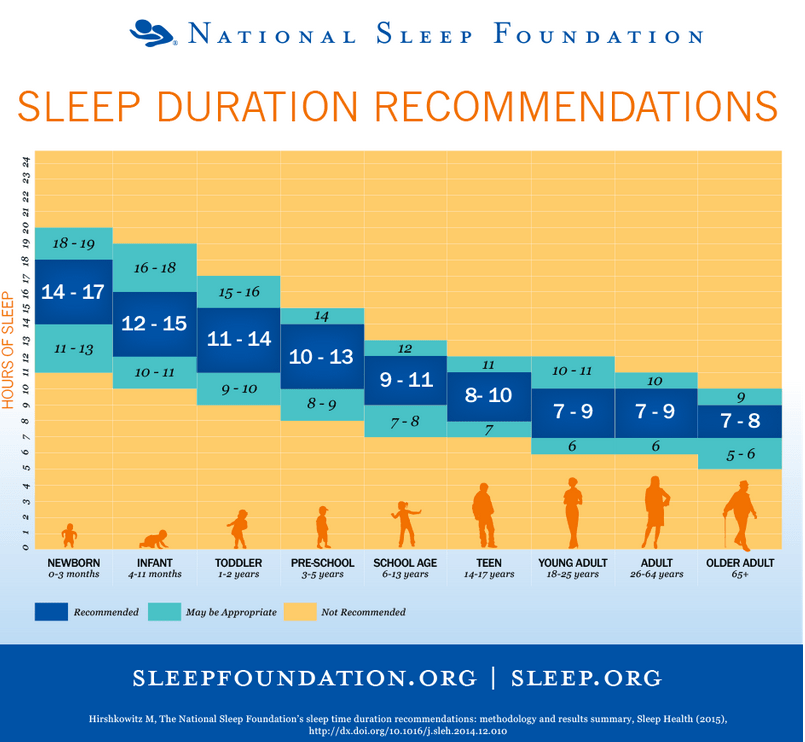Advertisement
Dream On: New, Age-Specific Sleep Recommendations For Better Health

I slept badly last night — not even a full six hours. It could've been the snow-induced, marathon movie binge, or the dark chocolate snack after dark. But now, thanks to new recommendations on how much sleep we need for optimal health, I know precisely how much of a sleep deficit I'm running.
According to a new report from the National Sleep Foundation, sleep requirements are age-specific and evolve throughout life. The group says this is the first time that ideal sleep durations have been categorized specifically by age, from newborns to seniors.
Here's the quick summary, from the Sleep Foundation news release:
·Newborns (0-3 months): Sleep range narrowed to 14-17 hours each day (previously it was 12-18)
·Infants (4-11 months): Sleep range widened two hours to 12-15 hours (previously it was 14-15)
·Toddlers (1-2 years): Sleep range widened by one hour to 11-14 hours (previously it was 12-14)
·Preschoolers (3-5): Sleep range widened by one hour to 10-13 hours (previously it was 11-13)
·School age children (6-13): Sleep range widened by one hour to 9-11 hours (previously it was 10-11)
·Teenagers (14-17): Sleep range widened by one hour to 8-10 hours (previously it was 8.5-9.5)
·Younger adults (18-25): Sleep range is 7-9 hours (new age category)
·Adults (26-64): Sleep range did not change and remains 7-9 hours
·Older adults (65+): Sleep range is 7-8 hours (new age category)
The release quotes Charles A. Czeisler, PhD, MD, chairman of the board of the National Sleep Foundation, chief of sleep and circadian disorders at Brigham and Women's Hospital, and Baldino Professor of Sleep Medicine at the Harvard Medical School: "This is the first time that any professional organization has developed age-specific recommended sleep durations based on a rigorous, systematic review of the world scientific literature relating sleep duration to health, performance and safety..."
Here's more from the Sleep Foundation:
A new range, "may be appropriate," has been added to acknowledge the individual variability in appropriate sleep durations. The recommendations now define times as either (a) recommended; (b) may be appropriate for some individuals; or (c) not recommended.
"The National Sleep Foundation Sleep Duration Recommendations will help individuals make sleep schedules that are within a healthy range. They also serve as a useful starting point for individuals to discuss their sleep with their health care providers," said David Cloud, CEO of the National Sleep Foundation.
